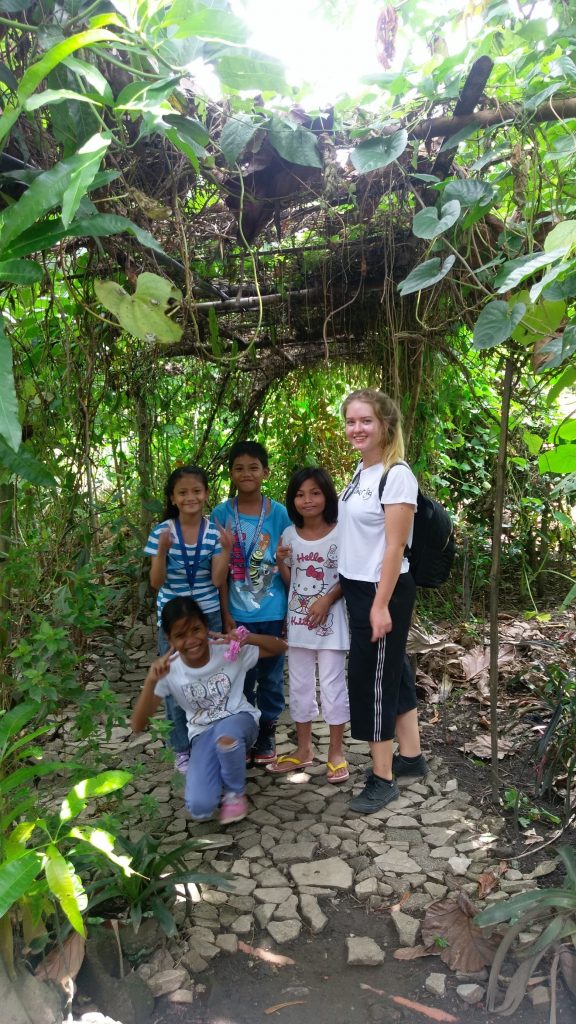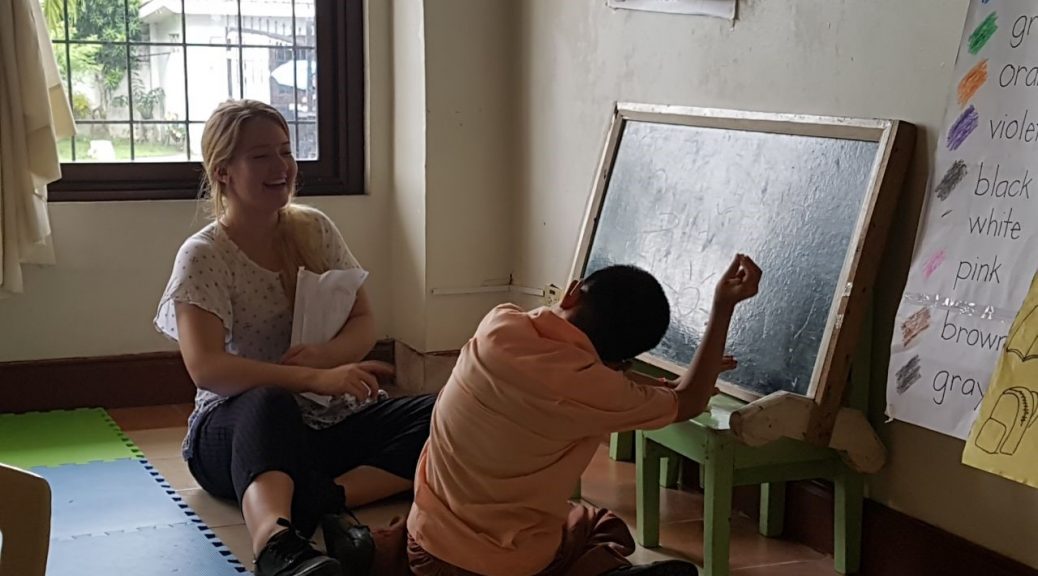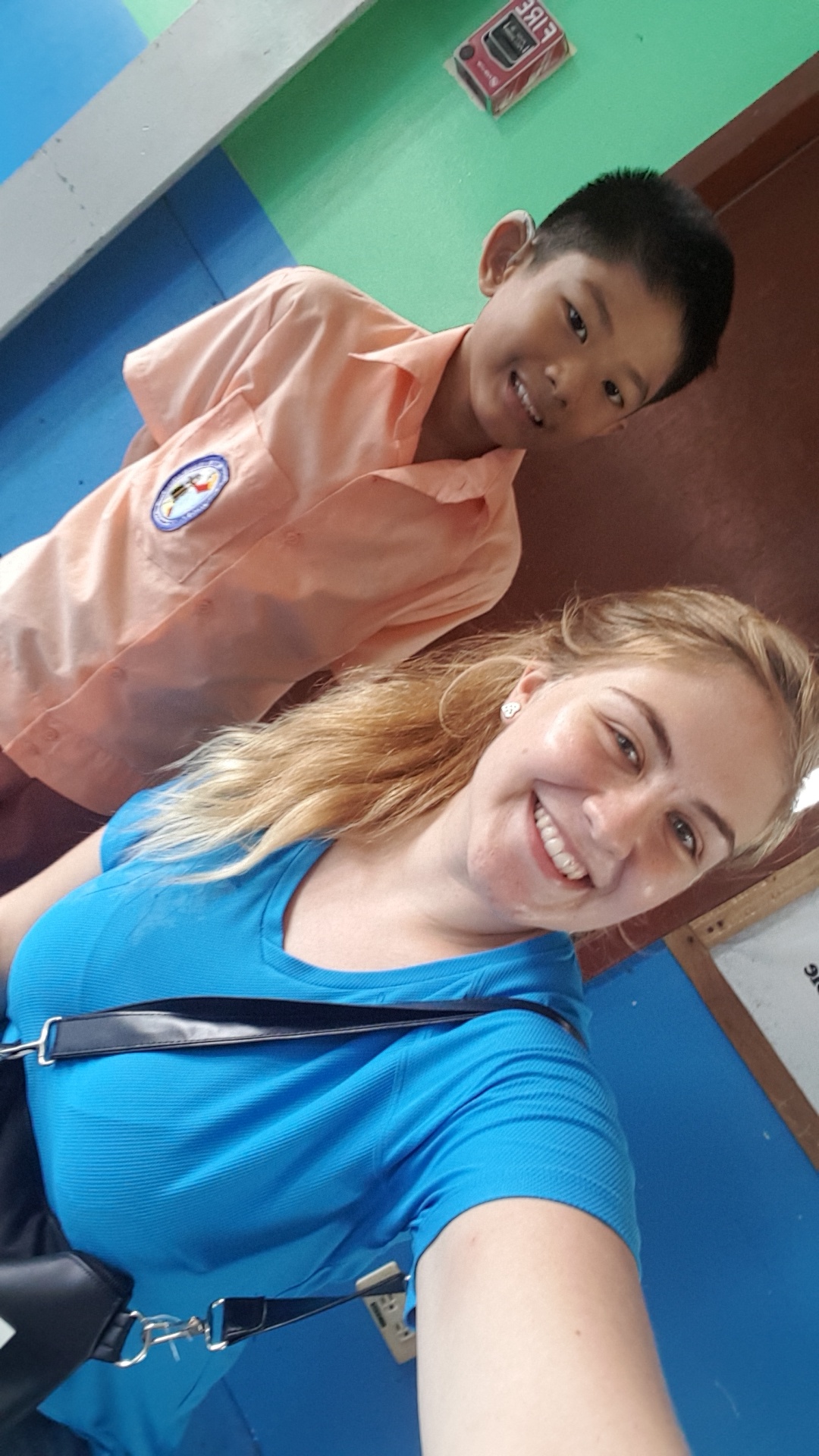At approximately 23:25 on 2nd of October I arrived in the Philippines for the first time. I can´t even tell how I felt the first hours, because I was so tired from the 23 hours flight. But when we got out of the airport in Manila to look for our hostel driver, we asked some heavily armed security guard for help and I couldn´t help but stare at this big, fat machine-gun he carried as if it was nothing. Well, this is different. People here are armed and it´s nothing special. Welcome to the Philippines.
In the morning of 3rd of October I finally arrived in Naga Airport, which is not quite bigger than ours in ringheim for everyone who knows it. So when my luggage and that of the other fifteen Passengers was brought to us, there was I. A Newbie in the Philippines.
Mareike and Rey fetched me from the airport and I was introduced to the traffic, nature and lifestyle of this magnificent country. With big eyes I stared trough the car window, seeing tricycles, vans, pujaks, jeepneys and sometimes also cars passing by, even though it’s a one-lane street and there is oncoming traffic. During the next 10 minutes of watching, I could spot at least 20 situations where an accident was almost inevitable. The streets are loud, everybody honks at each other, and because everybody is honking, nobody feels addressed and everyone is just doing what he wants to do, because nobody cares anyway. There basically are no rules in traffic here.
Except maybe three:
- If you are scared, you´ve lost
- Honk ( …because there still is a 1% possibility that out of the other 100 vehicles on the street, the vehicle you want to address hears you; because everyone does; and it’s a nice sound)
- Always plan to drive at least 2 hours longer than you would in Germany, because the fastest speed is around 40 km/h and traffic jams are everywhere
Three weeks later I can say: Yes, it is scary, but it also works somehow. Until now I never saw a serious accident. Just hundreds of almost-accidents.
The nature here is absolutely breath-taking. For someone who never got anywhere near tropical countries, it is marvellous. Palm trees and rain forests everywhere. Tropical fruits and vegetables such as dragonfruit, mango, papaya, buko, malungay and opo are fantastic and certainly a very good reason to stay here. Every food they serve is a little adventure for me that I wouldn’t want to miss.
The lifestyle here is also different. If you google pictures from the Philippines you are most likely to see rainforests with tiny little houses in between. Very sweet, native and kind of original you would say. Nobody tells you, that these people don´t have a solid floor, they don’t have tiles or parquet in their house, it is just dirt, pure soil. In most cases they don’t have clear running water and electricity is way too expensive. Oh, and I forgot to say that eight humans live in that shack, which is not bigger than my bathroom at home. This is the reality of most Filipinos. And I don’t speak of the very poor people here, this is basically middle class.
Everything is different – but how could it not.
Apart from all these impressions I also have an aim here. Helping where I can. And I can help at the Joseph Gualandi school for the deaf and mute. The 45 kids in this school can´t hear, which is why they learn how to lipread and to speak properly. Both is very difficult, but the catholic sisters who run the school, somehow manage to teach it to them. My task is to help cooking for the children in the morning and give extra lessons for three students in lipreading and writing in the evening. The kids are lovely. Mareike and I teach the five year old Catherine, the 6 year old John-Phillip (he has ocean blue eyes and dark skin colour and hair, the most fascinating kid I have ever seen) and the 7 year old Romyr. Every one of them is overwhelmingly sweet and I love teaching them. I also love the work because I also got to meet the coolest sisters in the world. Young, open-minded, loving, cookie-baking, zumba-dancing sisters, who appreciate us even more than they should and want to show us everything in their country. Apart from praying before eating, there is no rule set for us. They give us space. In just the last three weeks we were able to create a Memory game for the kids to practice their memory, they took us to house visits of the poorest children, we learned the song “Perfect” from Ed Sheeran in sign language, we taught children from another school how to sign animals, fruits and numbers, we were baking cookies with the children, ate buko, learned to eat traditionally with our hands and we were even asked to create dance choreographies in ballet, hip hop and kickboxing for a presentation on the 20th of December.
Of course – it´s not just fun and rainbows here and I will elaborate on that at another time, but all in all I can say: it was a successful month, I´m glad that I´m given that chance and I´m up for much more.










